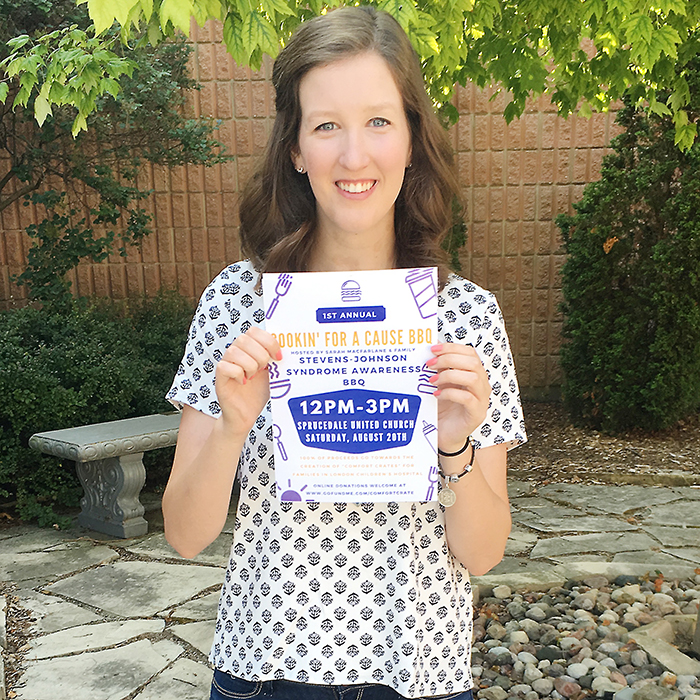
“One in a million gets kind of old. I was tired of being told I was special.”
Chances are you would feel the same way too if you suffered from Stevens-Johnson syndrome. That’s what Sarah MacFarlane, 23, endured earlier this year, resulting in an isolated long stay in hospital.
The affliction is one-in-a-million rare, a serious disorder affecting your skin and mucous membranes. It’s generally a reaction to medication or an infection.
For MacFarlane, it was a reaction to antibiotics. She had been on several different antibiotics in a short time spell, and one, or more, triggered Stevens-Johnson.
As a result, she spent 17 days in a London hospital.
“I had three different antibiotics in 30 days. They probably won’t be able to determine which one did it to me,” she said.
In early February, MacFarlane was fighting a sinus infection, and a doctor prescribed antibiotics.
By the beginning of March, suffering from flu-like symptoms, she went to hospital with a nasty cough.
“They found spots on my lungs and said it must be pneumonia, so more antibiotics,” MacFarlane said. “The very next day, I woke up and had tiny red dots over my arms, neck and face. My doctor thought it might be chicken pox.”
At that point, she was admitted to hospital in Chatham and placed in a reverse isolation room.
And that’s when things got even worse.
“Within a few hours, it had progressed. All the little dots had become the size of toonies,” she said.
She spent two days in hospital here before doctors could figure out what it was, and was then transported to London, where she would spend the next 17 days.
“If I never have to go back to a hospital again, it will be too soon,” MacFarlane said. “The nurses were great, but because it was so rare, a lot of them didn’t know how to handle it. It’s not common. I wouldn’t wish it on my worst enemy.”
The lack of knowledge impacted MacFarlane and her parents, Rick and Andrea, as well.
“My family felt very lonely, as no one could relate. It’s a very lonely syndrome,” she said.
That feeling of loneliness is something MacFarlane decided to attack. She’s raising money to create crates for victims and their families.
“I spoke with the Children’s Health Foundation in London. I want to create comfort crates for caregivers and their children in the hospitals – things to make the hospital room a little more homey, and things they might need while they are there,” she said.
The crate for a child would have toys, stickers and games, MacFarlane said, while the one for the parents would contain such items as a toothbrush and toothpaste, and a neck pillow.
“I know my parents slept by my side for all 19 days,” she said. “Sleeping in those recliners isn’t comfortable, especially without a pillow.”
Originally, MacFarlane set a goal of $500, and started a GoFundMe page, https://www.gofundme.com/ComfortCrate
.
“I shared that on Facebook with my friends. I’ve already raised $495, so now my goal is $1,000,” she said. “It was such a nice surprise to see the reaction.”
She and her family have a barbecue fundraiser event set for Aug. 20, Cookin’ for a Cause, at Sprucedale United Church on Victoria Avenue in Chatham from noon until 3 p.m.
“We’re recruiting all my family to be barbecuers for the day,” she said.
MacFarlane also wants to raise awareness, so more people know about the syndrome, what can trigger it and what to look for in terms of symptoms.
“We do live in such a pharmaceutical-driven society today,” she said. “Knowing what your reaction is to a drug is smart. I want to create a positive conversation in Chatham about it.”
As for MacFarlane’s future, she said if she were exposed again to whichever antibiotic set off the syndrome, it would likely happen again. She now wears a Medic Alert bracelet identifying which of the two classes of antibiotics she cannot have.






